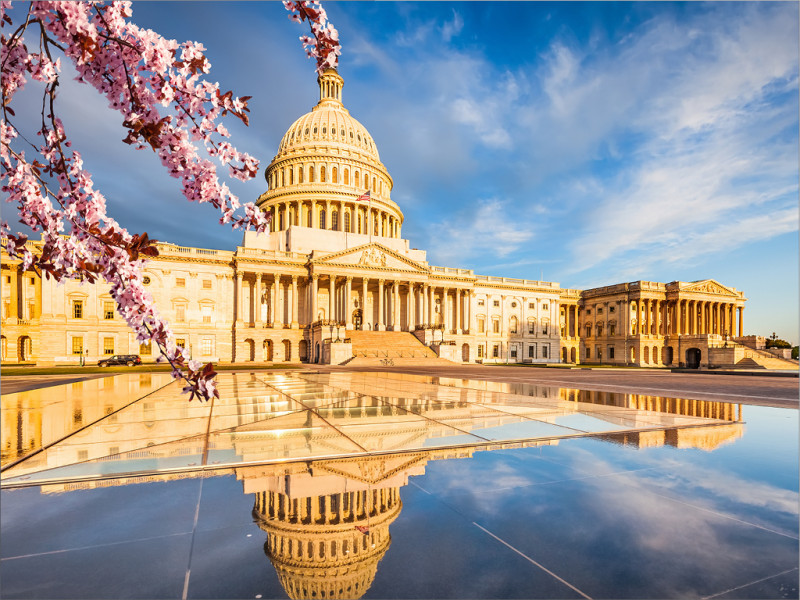Private lenders like you work tirelessly to grow your business and push the industry out of niche obscurity into a viable alternative to traditional lending. Still, there is one glaring arena where you have missed the mark: representing yourselves in the halls of state and federal legislatures.
The fate of issues that impact private real estate lending are too often in the hands of people who know too little about it. Lawmakers see hundreds of thousands of bills annually at both the state and the federal levels, many of which have direct—if unintentional—impact on private lenders’ daily operations.
When we look back at some of the recently implemented regulations, many of which created operational hurdles, the post-mortem shows that many of them didn’t have to apply to private lenders.
Talking About You, HMDA.
January 1 marked a failure in private lender advocacy. That’s the date when the 2015 updates to the Home Mortgage Disclosure Act took effect. The expansion required that many private lenders report data to the Consumer Financial Protection Bureau for their non-consumer (business-purpose) loans secured by residential property.
Allowing a consumer-focused agency even a modicum of regulatory oversight over business-purpose loans is problematic. Beyond that, such measures set a precedent for continued legislative conflation of traditional financing with private lending. Tongue-in-cheek, you may remember that the latter industry exists specifically to fill the market gaps that government regulation caused in the former.
The sad part? It could have been a win.
This year marked a victory for credit unions in the same arena in which private lenders floundered. The industry successfully lobbied via Senate Bill 2155 to increase the HMDA reporting threshold from 25 to 500 transactions. The problem? The carve-out applied only to insured depository institutions and credit unions, which you may notice private lenders are not.
With S-2155 essentially creating an exemption for small credit unions performing similar transactions as private lenders, the issue is not that regulators refuse to listen. It’s that private lenders lack a voice.
Local Voice Lacking Too
And it’s not just federally. In many ways, states have as much power to unintentionally create operational and legal nightmares for the small businesses caught in their overbroad regulatory nets.
For example, in January, Florida House and Senate subcommittees passed bills that would allow the state’s Office of Financial Regulation to:
- Oversee mortgage loans made for business purposes.
- Require mortgage licensing for brokers of these loans.
- Review companies offering or originating private loans.
The respective House and Senate bills had strong bipartisan support and were expected to pass without modification. Many states had eyes on Florida as they determined their own reaction to federal SAFE Act requirements.
The SAFE Act doesn’t require mortgage loan originator licensing for business-purpose loans secured by one- to four-unit residential properties. Despite this, states continue to eye the trend, primarily due to the ease in regulating collateral type over loan purpose. Florida would be the 11th state to push in this direction.
If you’re a private lender, this circumstance is—or should be—a scary one, regardless of your plans to enter the Florida market. Beyond the not insignificant financial burden that licensing compliance places on small businesses, it points to the increasing inevitability of similar regulation passing across the U.S. Startlingly, that inevitability is not because state governments see a specific need for additional oversight of private lenders.
Wait, What?
Back to Florida. If you were wondering, those bills passed with Governor Scott signing HB 935 into law – but with new, extensive modifications that exempted business purpose loans, among other advantageous changes and clarifications.
How did those changes come about?
This time, the American Association of Private Lenders (AAPL) launched a letter-writing and call campaign, asking private lenders to contact the governor’s office with their position on the bills.
“Governor Scott told us that our informational letter to his office was one of his primary reasons to require modifications – or he’d veto,” said Linda Hyde, managing director of AAPL. “Being able to pinpoint this outcome to our action as an association put our status as an advocate in the spotlight.”
While government may not intend to specifically regulate and create undue hardship for the small businesses that make up the private lending industry, it cannot safeguard the interests of a group it either doesn’t understand or doesn’t know exists. Before the contact campaign, Governor Scott had no idea of the size and scope of the private lending industry in Florida or the unintended consequences of legislators’ overbroad prospective regulation. AAPL’s success was in providing the right information to the right person at the right time.
So, Florida Was a Win. Now What?
The private lending industry is getting too big. Well, too big to fly under the radar in the face of regulation that increasingly conflates it with conventional consumer lending.
Florida’s success has shown the industry that it can influence outcomes in its favor. But AAPL still considers Florida private lenders’ mobilization to have nearly been too little, too late. Florida narrowly missed its addition to the SAFE Act implementation overreach tally.
“Now is the time to organize our plan of action to protect private lenders’ interests on Capitol Hill and the state legislatures,” said Hyde. “While private lending is still something of a niche industry, it’s growing closer to becoming a mainstream alternative. That means a lot more eyes on us. It won’t just be unintentional overreach we have to watch for much longer.”
Are Associations Enough?
No. Although an association acts as a unified, national voice for its members and a primary source of information and advocacy to legislatures, there are three things associations lack in their efforts regarding private lenders:
- Constituency
- Money
- Data
Constituency // There is power in many squeaky wheels all squeaking together. While associations can speak generally on behalf of their members, there is no real replacement for individual constituents to express their stance on a subject.
Private lenders must make time in their busy schedules to look beyond their individual businesses. They must contact legislators and tell their story on how a bill will impact their livelihood. Beyond individual efforts, they must also engage with their chosen organizations to build upon existing efforts and create strength in numbers.
Money // Money always speaks, but it shouts when it comes to elected officials. While private lenders don’t yet have a PAC for donations, they can and should still individually research and donate to officials and/or causes that are good for their businesses.
Data // How much debt does the private lending industry finance? How many deals run through it annually? What’s the average deal size? What’s its foreclosure rate? What kinds of properties are being financed?
From the kinds of statistics that would help legislators make informed decisions to data that merely helps private lenders run a better business, industry data are lacking or nonexistent. At best, the industry looks disorganized and siloed. At worst—and considering its growing size—it makes the private lending profession appear shady and secretive. If private lenders wish government to view it as a bourgeoning powerhouse industry to be taken seriously and listened to, it must arm itself with the data its financial industry counterparts hold as standard.
Step Up Now
The private lending industry has numerous examples of where it could have earned major wins for the small businesses that make up its majority. The problem was never that it couldn’t win, but that it didn’t show up. Advocacy can and has worked. Now’s the time. ∞
AAPL launched its Government Relations Committee at the end of 2018. Sign up to receive legislative updates, join a Town Hall, or apply to be a member of the committee!













Leave A Comment